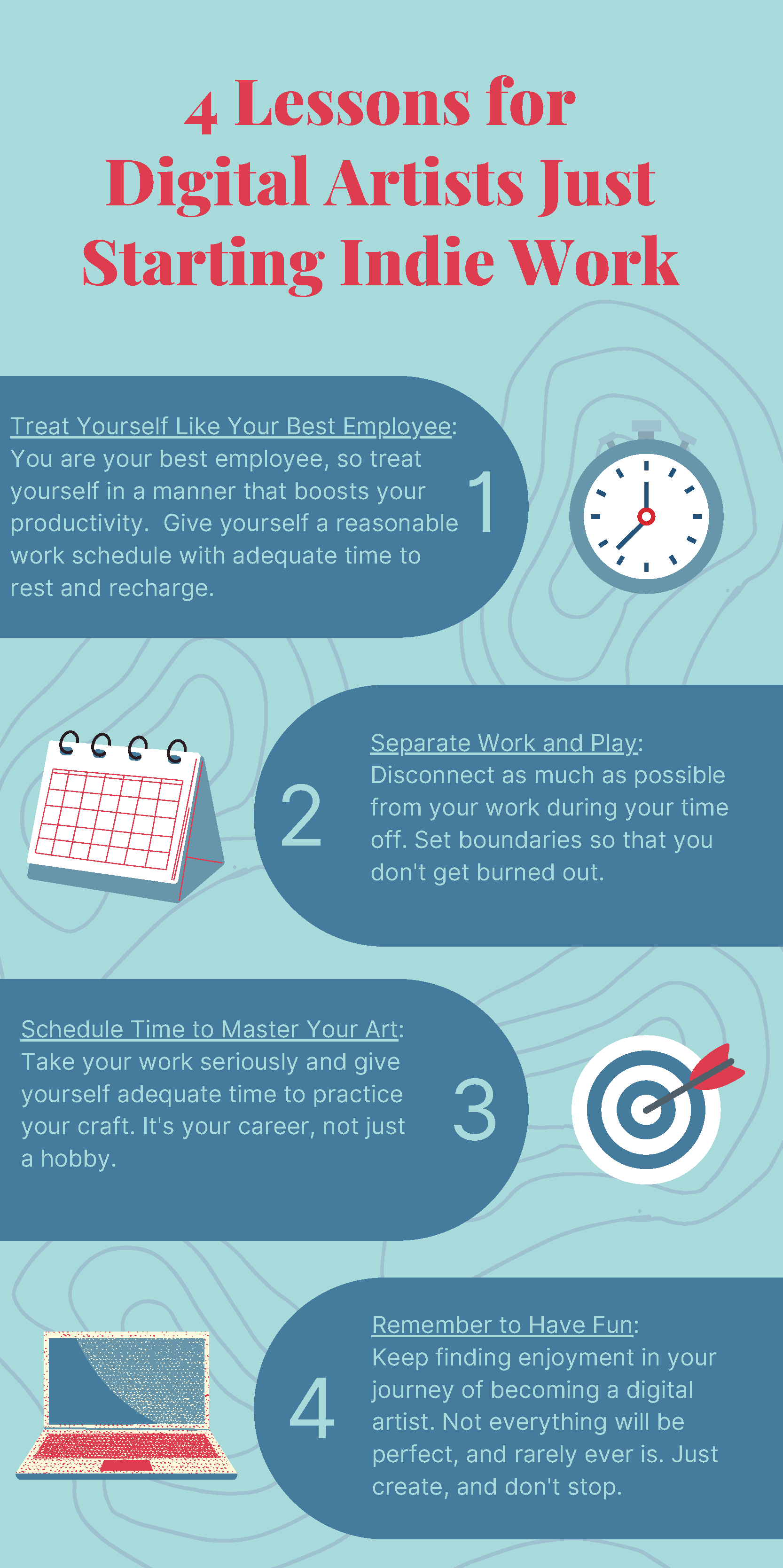4 Lessons for Digital Artists Just Starting Indie Work

The first week of our journey to build a digital game studio provided us with valuable lessons when just starting out. For example, I spent a lot of time fixating on the blog content I “needed” to create and how it must solve some great mystery of the game industry. It turns out that I didn’t need to find the Holy Grail of game development to begin creating content, I just needed to create. I’ve listed this and a few other lessons I’ve reflected on this week, in hopes that you may also find it useful in your journey as well:
1. Treat Yourself Like Your Best Employee
Treat yourself like your best employee, because essentially you are worker, manager, and CEO of your own company. If you were a leader in an organization, perhaps you are already, what strategies are going to lead to a productive and happy workforce? The answer is not a 50–60-hour work week that bleeds into nights and weekends, so why subject yourself to that either? Working independently means you have the freedom to design a schedule that fits your needs as best as possible. Keep in mind though that the last thing you want is your star employee (you!) sitting on the sidelines, so ensure you’re still spending adequate time on task. Essentially, make sure your work schedule is realistic, because no one knows better than you about what your limit and preferences are.
2. Separate Work and Play
Set boundaries for your work week and make sure you’re not “taking your work home with you.” What I mean by this is to make sure that your time off the job, including personal and family time, is spent completely disconnected from your work, or as close to as possible. It’s not fair to yourself or your family to spend your quality time away from work physically present but mentally tied to your work. This is easier said than done, as a husband and parent myself, it’s not always as simple as “not thinking about it”. One strategy that might help could be to silence your work cell phone during personal time, or another example might be to designate only a few times of the day to check email. Give yourself time to recharge, or your battery will eventually ware and burn out.
3. Schedule Time to Master Your Art
Give yourself the space and time to take your career seriously. Making art is hard work. If you get caught in the echo chamber of those that think art is easy or unimportant, I’m here to remind you: your work is valuable, and you deserve to make a living by doing what you love. A career in art is a legit career, and the work you do as an artist is just as valuable to the world as the work of an engineer, a physician, or a police officer. The time you spend doing art is not just a hobby, it’s perfecting your craft in aspiration of creating masterpieces in your chosen vocation. Therefore, set a schedule that allows you the time you need to achieve the goals that you’re aiming towards as an artist, and then make it clear to yourself and those around you that this time is integral to your career success. Consistent, deliberate practice is the key to mastery.
4. Remember to Have Fun
Remember that you chose a career that allows you to imprint your vision upon the world in a way that only you can do! If you’re still uncertain of what that career might be than find what you enjoy and find what comes naturally for you. People will tell you that you glow when you talk about it. Chase that at all costs. I'm not saying to ignore the needs of your customers or target audience, but don't lose yourself in the process, or you will resent your work more than you enjoy it. Lastly, keep in mind that your work doesn’t have to be perfect, you learn more from failure than success, and the only way to get better is through trial and error. Just create, and don’t stop.
